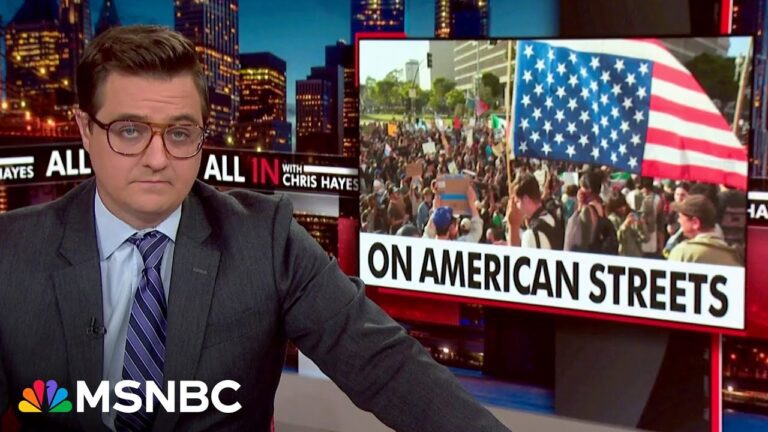Video at the bottom!
In a tense evening broadcast, Chris Hayes began by addressing the escalating conflict between Israel and Iran, detailing the military strikes initiated by Israel against Tehran, which targeted both nuclear and military infrastructure. The segment discussed the U.S. involvement in defending Israeli actions and highlighted the broader implications of such military engagements, particularly as they relate to promises made during the Trump administration regarding war in the Middle East.
Following the international focus, Hayes shifted to domestic concerns in the United States, emphasizing the rising resistance and protests occurring across the country in response to Donald Trump’s authoritarian approach. This resistance contrasted starkly with Trump’s perceived desire to dominate American political life, creating an ongoing struggle between governmental authority and the will of the people.
The situation in Los Angeles was underscored, where the National Guard had been deployed against the state governor’s wishes. Hayes reported on the presence of Marines assisting in protecting federal buildings, marking a significant escalation of military involvement in civilian areas—a rare occurrence during domestic unrest.
Additionally, Hayes highlighted alarming reports surrounding Mahmoud Khalil, a Columbia graduate student who had been detained under dubious circumstances involving constitutional protections of speech. This case exemplified the troubling trends of the Trump administration’s crackdown on dissent and civil liberties, as well as the administration’s tendency to manipulate legal justifications for detainment.
Amidst these developments, Hayes noted the planned protests against Trump’s upcoming military parade, now seen as an emblem of his desire for authoritarian rule. Activists across the country were mobilizing under the banner “No Kings,” aiming to draw attention to the administration’s actions that many view as overreach.
The segment concluded with insights from activists involved in the protests, emphasizing a growing sentiment against authoritarianism and a collective determination among everyday citizens to resist governmental overreach. They expressed optimism for widespread participation in protests, reinforcing the notion that public mobilization can have a significant impact on political dynamics in the country.


